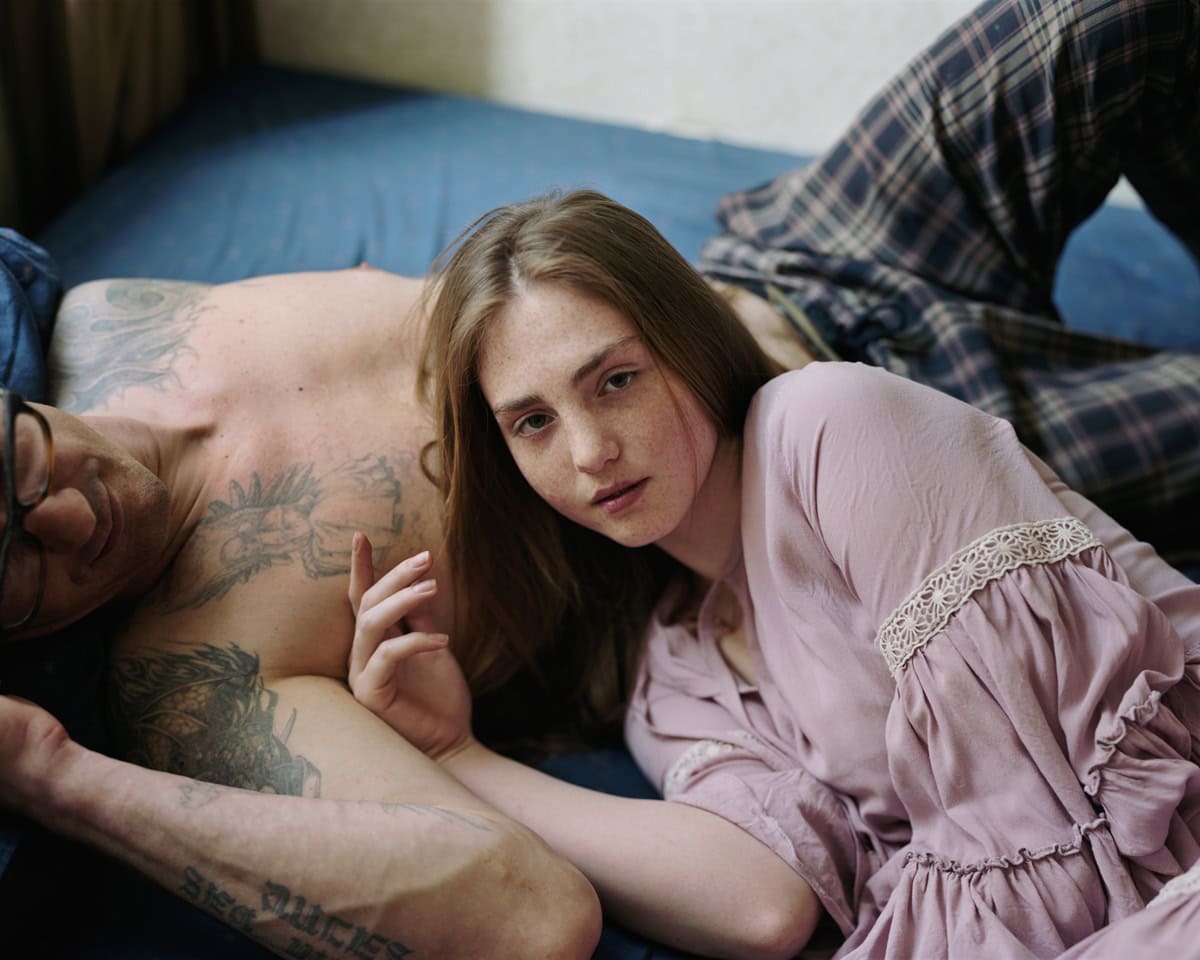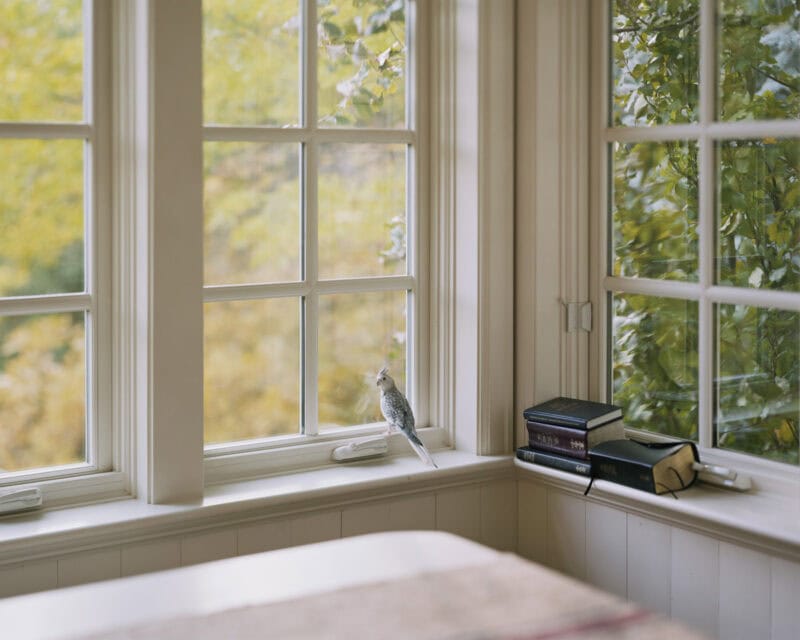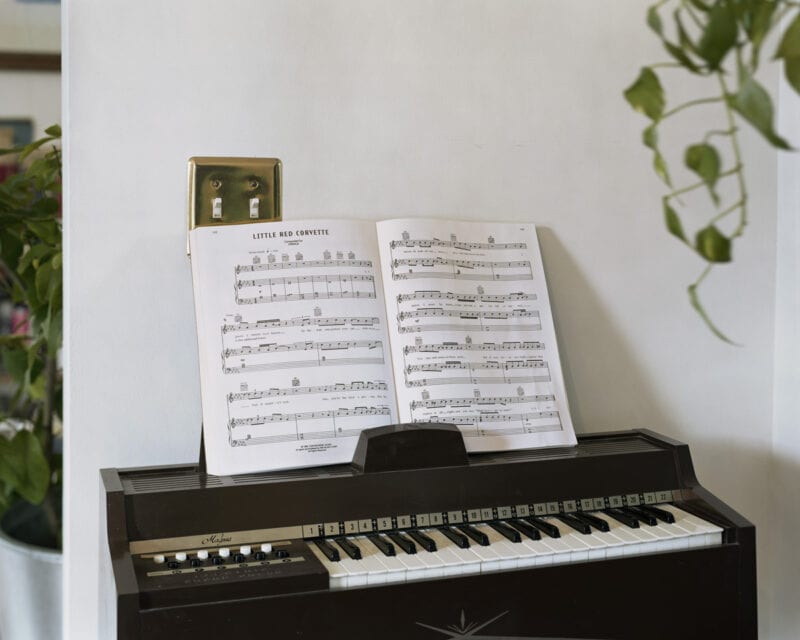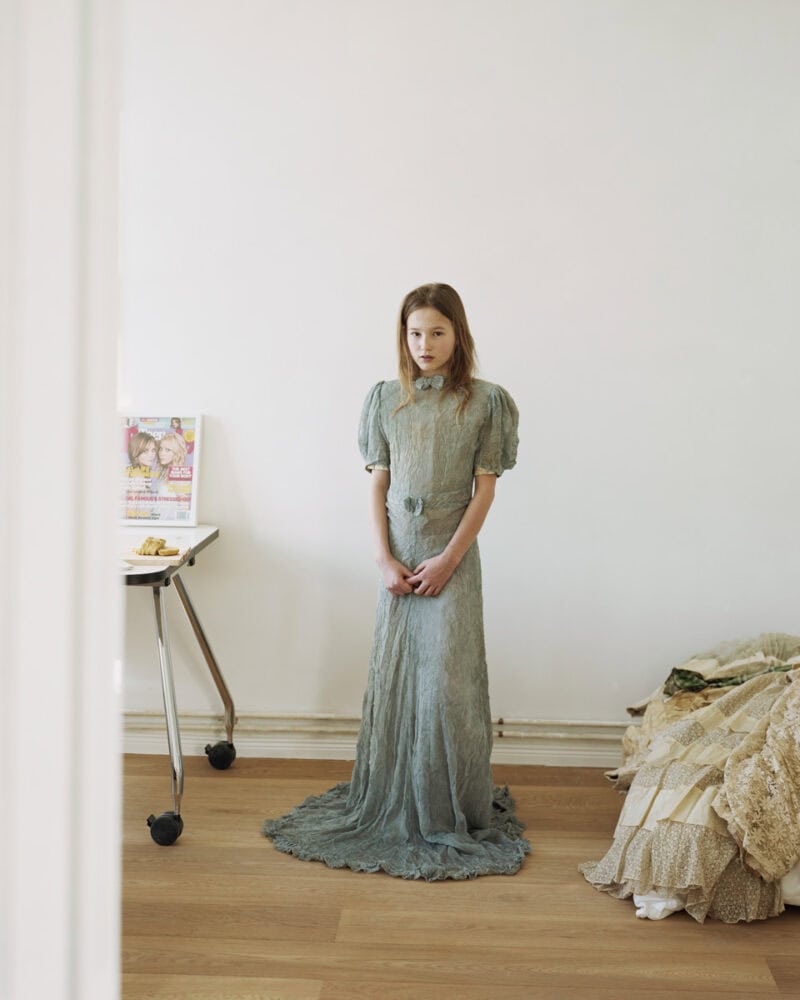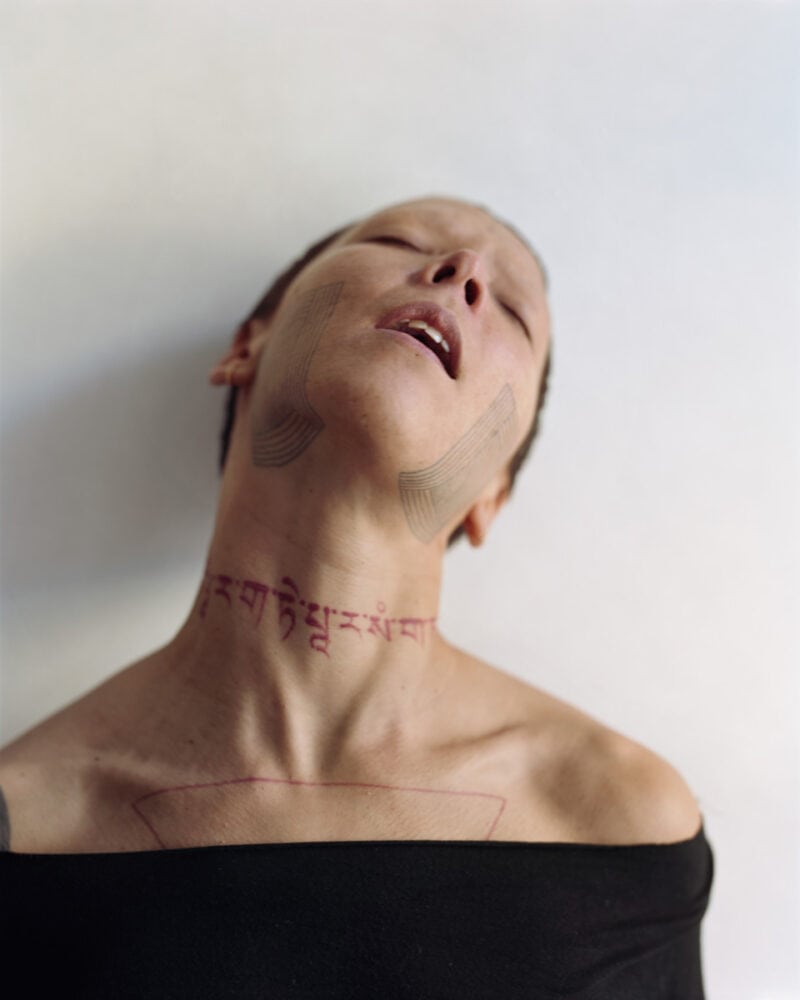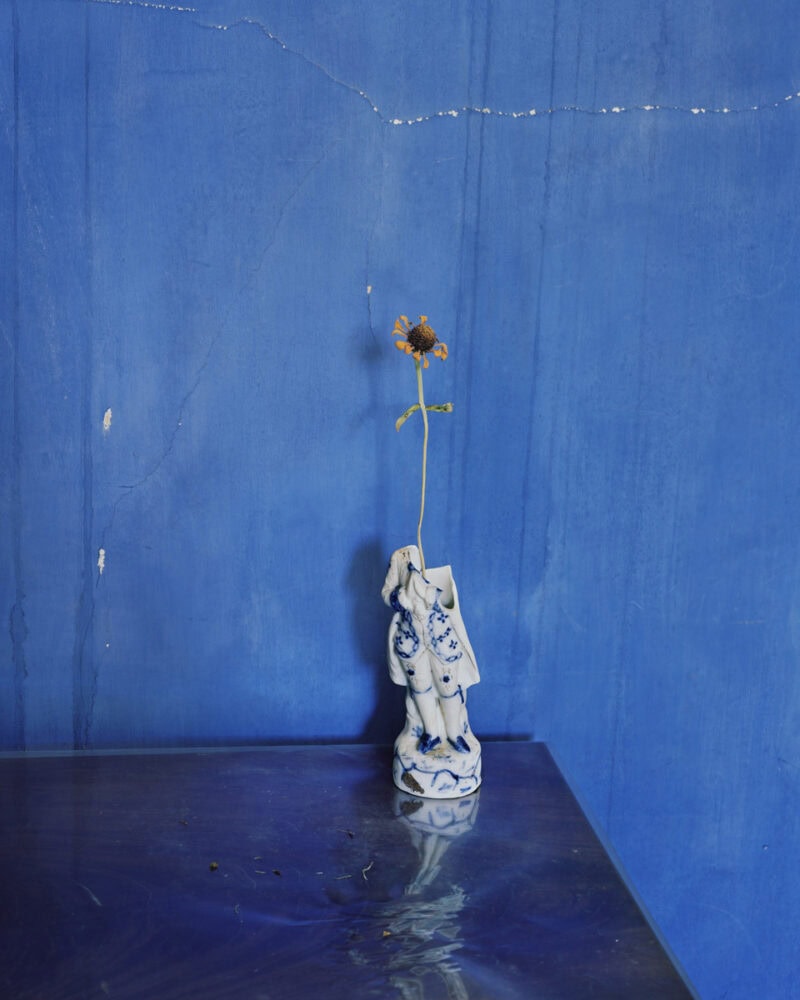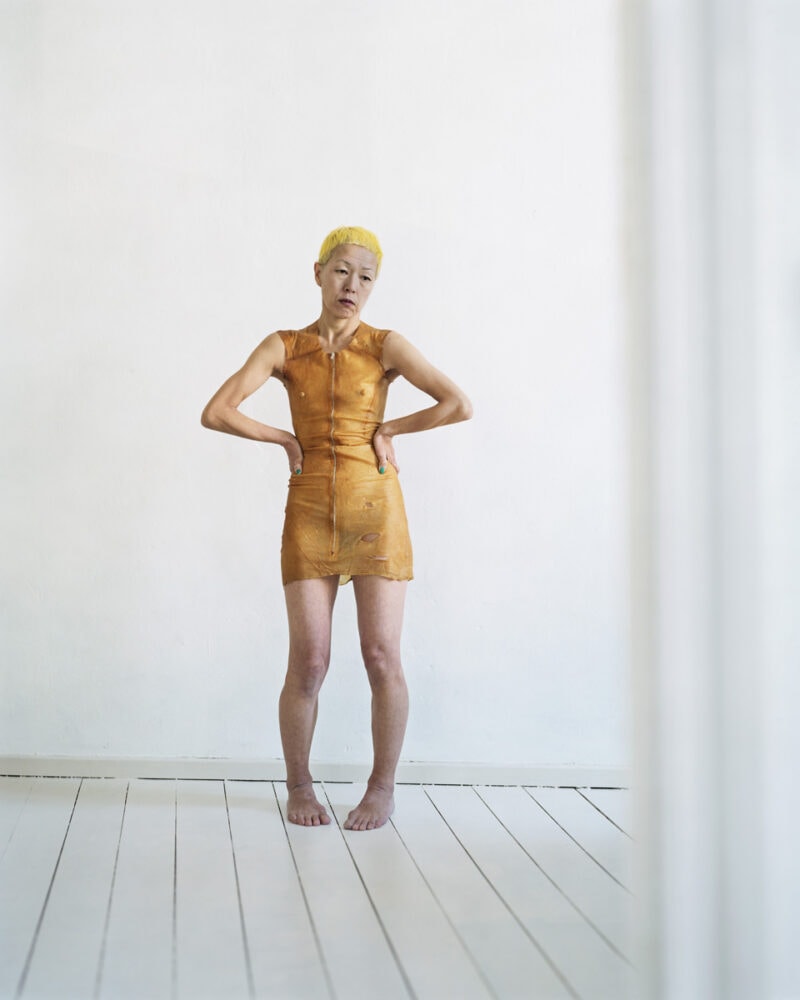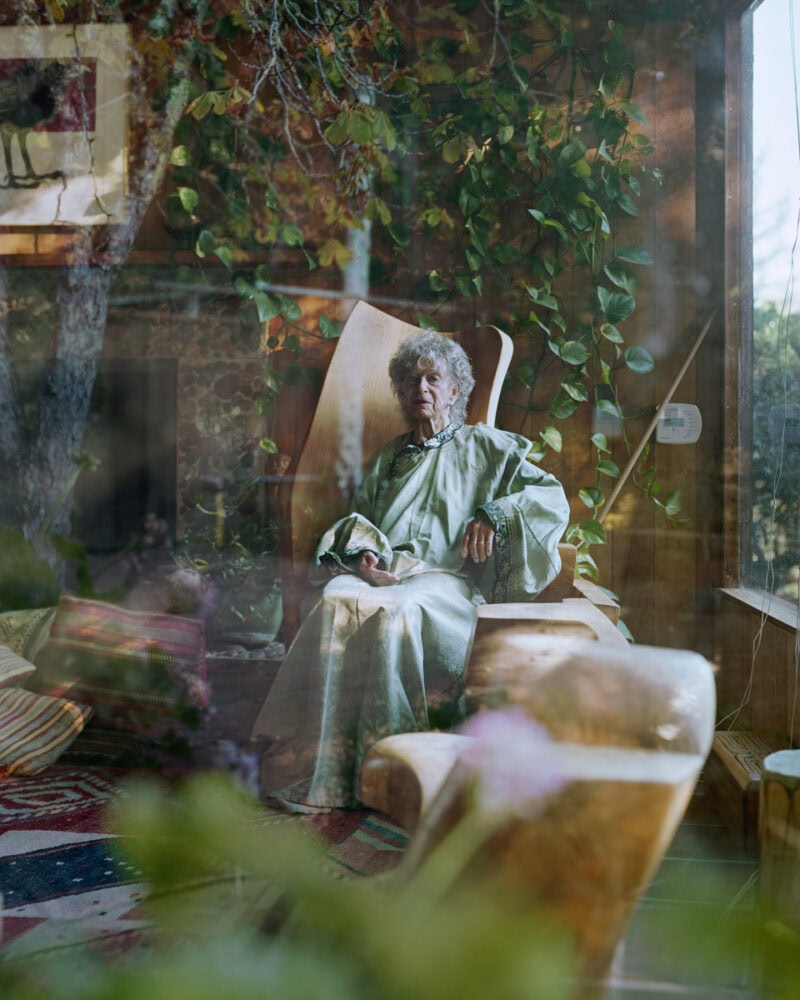Alec Soth (b. 1969) is a photographer born and based in Minneapolis, Minnesota. He has published over twenty-five books including Sleeping by the Mississippi (2004), NIAGARA (2006), Broken Manual (2010), Songbook (2015) and I Know How Furiously Your Heart is Beating (2019). Soth has had over fifty solo exhibitions including survey shows organized by Jeu de Paume in Paris (2008), the Walker Art Center in Minnesota (2010) and Media Space in London (2015). Soth has been the recipient of numerous fellowships and awards, including the Guggenheim Fellowship (2013). In 2008, Soth created Little Brown Mushroom, a multimedia enterprise focused on visual storytelling. Soth is represented by Sean Kelly in New York, Weinstein Hammons Gallery in Minneapolis, Fraenkel Gallery in San Francisco, Loock Galerie in Berlin, and is a member of Magnum Photos.
About I Know How Furiously Your Heart Is Beating – MACK (2019):
Taking its name from a line in the Wallace Stevens’ poem The Gray Room, Alec Soth’s latest book – I Know How Furiously Your Heart Is Beating (MACK, 2019) – is a lyrical exploration of the limitations of photographic representation. While these large-format color photographs are made all over the world, they aren’t about any particular place or population. By a process of intimate and often extended engagement, Soth’s portraits and images of his subject’s surroundings involve an enquiry into the extent to which a photographic likeness can depict more than the outer surface of an individual, and perhaps even plumb the depths of something unknowable about both the sitter and the photographer.
«After the publication of my last book about social life in America, Songbook, and a retrospective of my four, large scale American projects, Gathered Leaves, I went through a long period of rethinking my creative process. For over a year I stopped traveling and photographing people. I barely took any pictures at all. When I returned to photography, I wanted to strip the medium down to its primary elements. Rather than trying to make some sort of epic narrative about America, I wanted to simply spend time looking at other people and, hopefully, briefly glimpse their interior life. In order to try and access these lives, I made all of the photographs in interior spaces. While these rooms often exist in far-flung places, it’s only to emphasize that these pictures aren’t about any place in particular. Whether a picture is made in Odessa or Minneapolis, my goal was the same: to simply spend time in the presence of another beating heart» (Alec Soth).
WHY IS OUR HEART FURIOUSLY BEATING? – words by Alice De Santis:
Why does the heart beat so furiously? Because I am a living being. But there are seven billion other reasons too. The heart is the engine of our body, it is essential for the circulation. It is the organ needed to transport the oxygen from the lungs to feed the cells, organs and tissues of the human body, it deals with the exchange of carbon dioxide, which is the waste product of the metabolic cycle. The primary function of the heart is therefore to circulate blood through our body but as we well know, in addition to reassuring us that we are undeniably alive, the heartbeat is a symptom of excitement, trepidation or disturbance. It is a sign that something is happening.
Every single event in our life is characterised by a different beat and every sensation moves the heart to different parts of the body. In situations of fear or extreme agitation, the heart moves slightly upwards bringing the throat cavity to pulsating life. When you are in love or excited, the heart slips down to inhabit that most instinctive and carnal part of our body, the belly. When you are in love, it’s as though you hear the noise that a ship makes when it sets sail across the jagged waves of the sea, an almost imperceptible yet explosive swishing, ready to cross into new territories. I believe that the heartbeat is what we have most in common with the animal kingdom. The heart is pure instinct and its beating helps us to assess a situation. The heart tells us that we are in danger, that we are anxious or that we are experiencing insurmountable joy. On this basis, I think I can safely compare myself to a hummingbird.
The hummingbird is an abnormal bird, it has a heart rate of 1.200 beats per minute. Its wings beat eighty times per second, and if you prevent those wings from beating, it will die in less than ten seconds. I am a hummingbird. I trust my heart blindly and listen to it, perhaps too much, every second of the day. I feel my ribcage filling up, I feel it empty, I just feel. As Sandro Veronesi says, «You are like a hummingbird because like a hummingbird you put all your energy into taying still. Seventy wing beats per second to stay where you are. You manage to stop yourself in the world and in time, you stop the world and time around you, sometimes you even manage to go back in time, and find what you had lost, just as the hummingbird can fly backwards». Just like the hummingbird, I fly backwards in search of past emotions that made my heart tremble. I can say that I have loved and that I love every single day. Just as I can say that I have been so afraid that I feared my heart might stop beating, ceasing to be my guide and sensor in the swirling sensations of life.
I remember how my heart behaved during every significant event of my little existence, I remember it so well that I think it might be the sixth sense. Of course I prefer remembering the beats I felt down towards the stomach, not because I’ve eliminated the hostile ones, indeed they taught me more than all the rest, but because those low and loudly silent beats make me feel like I am more than alive. The most fascinating thing is that we cannot control the heart, we cannot direct it or punish it for making the wrong choice. Because just like hummingbirds, if the wings of our heart stopped beating, we would die in less than ten seconds.
WHY IS OUR HEART FURIOUSLY BEATING? – words by Robin Sara Stauder:
My heart is a metronome. But, since the day I was born, it’s been beating out of time.
When you’re a kid and you find out you have an arrhythmia, you spend all your time trying to hear it. Figuring out which heartbeat is going to skip, and why. You ask yourself this as you clamber up and down a stool, and you still don’t know anything about how your heart stops, but you practise making it go really fast.
Then you start running, and you realise that the heart is a muscle too. You find out that the frequency it reaches when you cross a finish line is the same you feel when, before setting off, you just want to run as far away as possible. Your body, inexplicably, muddles anxiety and fatigue. And that creates a kind of drug.
You will meet adrenaline again as you gaze down over the edge of a cliff. You will feel it in those few seconds of flight, which only remain innocent as long as the sea is there to catch you.
When you learn to play the piano, they tell you that there is only one rhythm and that you have to follow it. Downbeats and upbeats. Who knows what an upbeat of the heart sounds like. I’ve never heard it. I want a break. I want to learn to slow down, but a slow heart is too much like a dead heart. I will ask the Buddha, the next time I meet him in the street – I will ask him, instead of killing him (S. B. Koop, If You Meet the Buddha on the Road, Kill Him).
«How bad does a crash have to be for it to be felt all the way into the future? How fast do you have to go to survive in someone’s memory?» (J. H. Khemiri, Everything I Don’t Remember). My memories are all high frequency even when I wish they weren’t. Quiet moments make no noise. The heart makes mistakes, it does what the head says not to. In one single reaction, it gathers to it things that have nothing to do with each other. It pulls together excitement and fear, anxiety and love.
But what if it’s right? Each of them contains something that stops you from thinking. From understanding. Something that just wants you to live. You lean over to look beyond, you see nothing. In that emptiness, everything blurs. Love becomes the anxiety of losing what you have, fear a vital instinct. It’s a slap in the face and the next day you wake up changed.
Leaning out. Over time, I have learned that the most dangerous precipice is other people. But if you manage not to fall, the view is incredible. In the presence of other beating hearts, you discover the beauty of going over the edge. Of drawing uncertain electrocardiograms together. And using recoil to keep yourself alive.
I think about this every time my cat falls asleep on my chest. He steps into my same nightmares and my waking heart regulates his. But it is never immune. Contact makes empathy unnecessary. The alignment is natural and permanent. Or so it seems, until the contact is broken.
In its absence, we forget that we all function according to the same mechanism. That behind every door, there’s a lonely human being. Alec Soth has travelled the world looking them all into the eyes. Now that those eyes meet mine, I know that we are all the same. And maybe now, if I close them, I will be less afraid.
Panic and love are different drums on the same kit. The piano has given way to this new tormented instrument. I want a break. I want to learn to slow down.
Of all the things that have made my heart beat, love is undoubtedly the least real – especially when it is absent. So why does my heart still beat so furiously?
My heart is a metronome. But, since the day I was born, it’s been beating out of time.
Credits
Words by Alice De Santis and Robin Sara Stauder
Photography by Alec Soth
